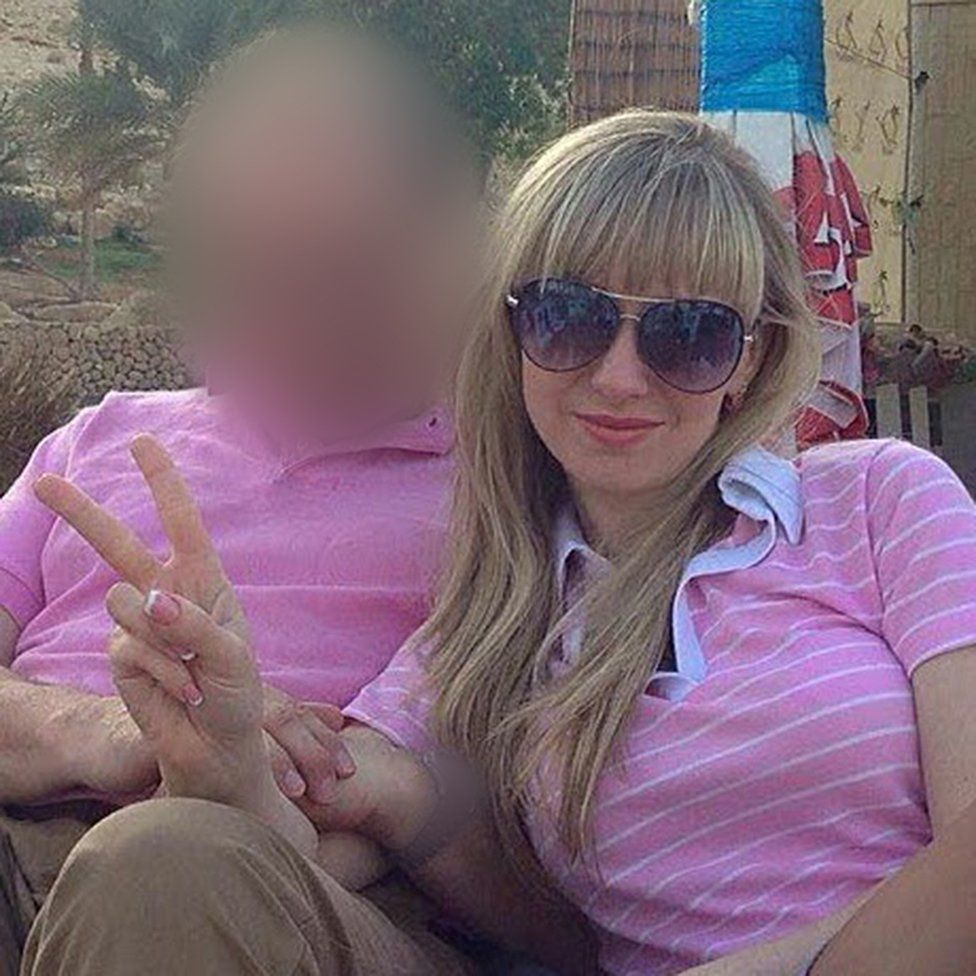22nd June 2021
A fake wedding, and a $250,000 scam
By BBC
[DISPLAY_ULTIMATE_SOCIAL_ICONS]

When a British charity worker got engaged to a young Ukrainian woman, he thought he was building a new life for them both in Odessa - he was wrong.
James's car pulled up at the Villa Otrada. The 52-year-old British charity worker had been looking forward to this moment for months.
He was excited to see his fiancee, Irina, waiting for him outside the restaurant on Ukraine's Black Sea coast. Twenty years younger than him, she looked glamorous, her blonde hair fresh from the hairdresser.
Not far away were what James thought were Irina's parents and 60 invited guests, also dressed to the nines.
James got out of the car and the waiting crowd turned to clap.
It was July 2017, the start of a hot summer in Odessa, and tables had been laid out on Villa Otrada's terrace overlooking the sea.
Moments later, James and Irina recited their wedding vows under an arch of flowers.
But what should have been the perfect moment was in fact nothing of the sort. By midnight James was lying alone in hospital, sick from a suspected spiked drink. He was married, but it wasn't to the woman he loved. It was the couple's wedding planner.
This is a story about how a British man lost most of his life savings, as well as his dignity. And how Ukraine's justice system laughed in his face.
James is not his real name.
Such is his embarrassment that he's told no-one in the UK his story, not even his family. The BBC has verified his account of what happened using bank documents, official records, text messages, and interviews with many of those directly involved.
A sign showing the silhouette of a man in a hat with a pipe sticks out above the pavement of Lanzheronivska Street in central Odessa.
Follow the yellow-and-black arrow through the archway and across a courtyard, and you reach the office of Robert Papinyan, private investigator.
The former policeman is well-dressed, with dyed black hair. Everything is on brand. There's a Sherlock Holmes notepad, Sherlock Holmes business cards and his ringtone is the theme tune of the Soviet TV version of Sherlock Holmes (which many in the former Soviet world argue is the best).
As it turns out, Mr Papinyan's methods bear little relation to that of his fictional hero on Baker Street.
"We don't work with the police, we use psychological methods," he says with a chuckle. "This money was taken illegally, so we have to use kind of illegal ways of getting it back."
A block away from Mr Papinyan's office in Odessa is Deribasovskaya Street. It's the entertainment heart of the city, full of restaurants and bars.
Walk down it in the evening and you'll almost certainly see Western men dining out with much younger Ukrainian women, a bag of expensive designer gifts sitting on the chair beside them.
But James says he didn't come to Odessa looking for love.
A charity worker living in the UK, he was asked by a friend in 2015 to help set up a new project supporting children fleeing the conflict zone in Ukraine's east. Europe's second-largest country had just undergone a revolution, and Russia had responded by supporting a rebel uprising.
Working abroad was new to James, but he threw himself into it with the help of a translator called Julia. For several months he shuttled back and forth, combining his voluntary work in Odessa with his full-time job in the UK.
Then that winter, a heavy snowfall brought their work in Odessa to a halt. There wasn't much to do, so Julia suggested that James might like to go on a date with one of her friends.
That friend was Irina. Then 32 years old, she was from Donetsk, one of the cities in eastern Ukraine that are now occupied by Russian-backed fighters. It soon became clear that her troubled past went much deeper than just fleeing war.
"She immediately told me about two previous marriages and why she didn't want to marry a Ukrainian man again," James says.
There was an age difference of 20 years but James says they got on "like a house on fire". The couple went out for a few evenings in a row, enjoying Odessa's nightlife.
James had fun with Irina, but they were never alone. Irina spoke minimal English and James no Russian or Ukrainian. So as is the case with much of Odessa's "dating" scene, a translator, in this case Julia, was always there - and getting paid up to $150 (£107) a day.
"It was a bit weird having someone repeating whatever was being said. But there was a chemistry between us," says James.
Perversely when they were apart, communication was easier. They flirted through the messaging app Viber, which has a translation function.
"You gave me a real fairy tale. And thanks so much for that… I believe in YOU. Just you can give me this happiness. I love you," one message she sent James says.
Over the next six months, the new couple saw each other whenever James came to Odessa. There were expensive meals and evenings at the Opera House.
But intimacy, even kissing, was off-limits. Translator Julia was always there and Irina told him she didn't believe in sex before marriage.
"I thought: 'That's a very high moral standard'," James says. "She'd obviously been brought up very well."
Click or Tap here to read more

TO RECEIVE NEWS NOTIFICATIONS And Covid NEWS VIA WHATS APP PLEASE SAVE OUR NUMBER AND SEND US A MESSAGE AT 7584896261 AND WE WILL ADD YOU TO OUR LIST
[DISPLAY_ULTIMATE_SOCIAL_ICONS]






